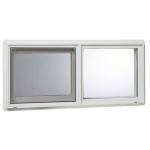How To Get A Basement Smell Out
Basements are often prone to developing unpleasant odors due to moisture, lack of ventilation, and the presence of organic matter. Eliminating these odors can be challenging but is essential for maintaining a healthy and comfortable living environment. Here's a comprehensive guide to help you effectively address basement smells:
1. Identify the Source
The first step is to determine the source of the smell. Common causes include:
- Mold and Mildew: Caused by excess moisture and poor ventilation.
- Musty Odor: Caused by stagnant air and lack of circulation.
- Sewage Odor: Caused by leaks or backups in the plumbing system.
- Pet Odors: Caused by pet urine, feces, or litter boxes.
- Tobacco Smoke: Caused by smoking or exposure to secondhand smoke.
2. Improve Ventilation
Adequate ventilation is crucial for preventing odors by removing stagnant air and moisture. Install exhaust fans in basement windows or walls to circulate outdoor air into the basement. Open windows and doors whenever possible to promote natural ventilation.
3. Reduce Moisture
Excess moisture creates a breeding ground for mold and mildew and contributes to musty odors. Use a dehumidifier to remove moisture from the air and prevent condensation on surfaces. Inspect the basement for leaks and fix them promptly to prevent water accumulation.
4. Clean and Disinfect
Thoroughly clean the basement to remove sources of organic matter that can produce odors. Use a bleach solution or commercial mold cleaner to kill mold and mildew. Wash fabrics, such as curtains and carpets, and discard any water-damaged items.
5. Neutralize Odors
Baking soda is a natural odor absorber. Place bowls of baking soda around the basement to absorb unpleasant smells. Activated charcoal is another effective odor neutralizer. Consider placing charcoal briquettes or activated charcoal filters in areas where odors are strongest.
6. Use Air Purifiers
Air purifiers can help remove airborne contaminants and odors. Choose an air purifier with a HEPA filter, which is effective in capturing mold spores, dust mites, and other allergens.
7. Seal Entry Points
Rodents and insects can enter the basement through cracks and gaps, bringing in odors and contaminants. Seal any openings around pipes, windows, doors, and vents with caulk or expanding foam.
8. Carpet and Flooring
Carpets and flooring can trap odors and moisture. If possible, replace carpets with hard flooring materials such as tile or laminate. Regularly vacuum and clean hard flooring to prevent dirt and dust buildup.
9. Plumbing Maintenance
Regularly inspect plumbing fixtures for leaks and ensure proper drainage. Clean drains using a drain cleaner to prevent blockages and eliminate odors. Avoid pouring grease or food scraps down drains as they can accumulate and create unpleasant smells.
10. Seek Professional Help
If persistent odors remain despite home remedies, consider seeking professional help. A mold inspector or odor remediation specialist can identify the source of the problem and provide targeted solutions.

How To Get Rid Of Basement Odor And Why It Smells In The First Place

How To Get That Musty Smell Out Of Your Basement

How To Get Rid Of Basement Odor And Why It Smells In The First Place

How To Get Rid Of Basement Odor And Why It Smells In The First Place

How To Make A Basement Smell Better With S Wikihow

8 Steps To Get Rid Of Musty Basement Smells Baker S Waterproofing

How To Get Rid Of Musty Smell In Basement Wet Basements

Musty Smells In The House Finding Them And Getting Rid Of

14 Clever Ways To Get Musty Smell Out Of Basement Odor In House Wet

Musty Smell In The Basement 4 Steps To Freshness Bob Vila
See Also








